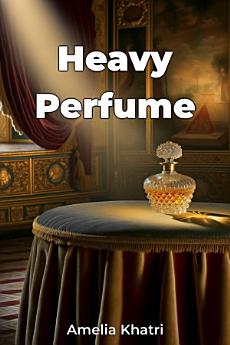Heavy Perfume
About this ebook
The narrative progresses chronologically from medieval European hygiene customs to the sophisticated scent culture of Versailles, examining how medical theories of the time actually discouraged bathing, believing it weakened the body. The wealthy compensated by developing an intricate system of olfactory communication, where specific fragrances became markers of social status and power.
At the center of this cultural phenomenon was the court of Versailles, where elaborate perfumes not only masked unpleasant odors but served as sophisticated tools for maintaining social hierarchies. The book uniquely bridges historical practices with modern perspectives, demonstrating how luxury fragrance trades and social status signaling continue to echo patterns established centuries ago.
By weaving together insights from anthropology, chemistry, and economics, the author creates an engaging analysis that speaks to both scholarly readers and those interested in cultural history. This multifaceted approach helps readers understand how sensory experiences and luxury goods have historically shaped, and continue to influence, social differentiation and power dynamics.








